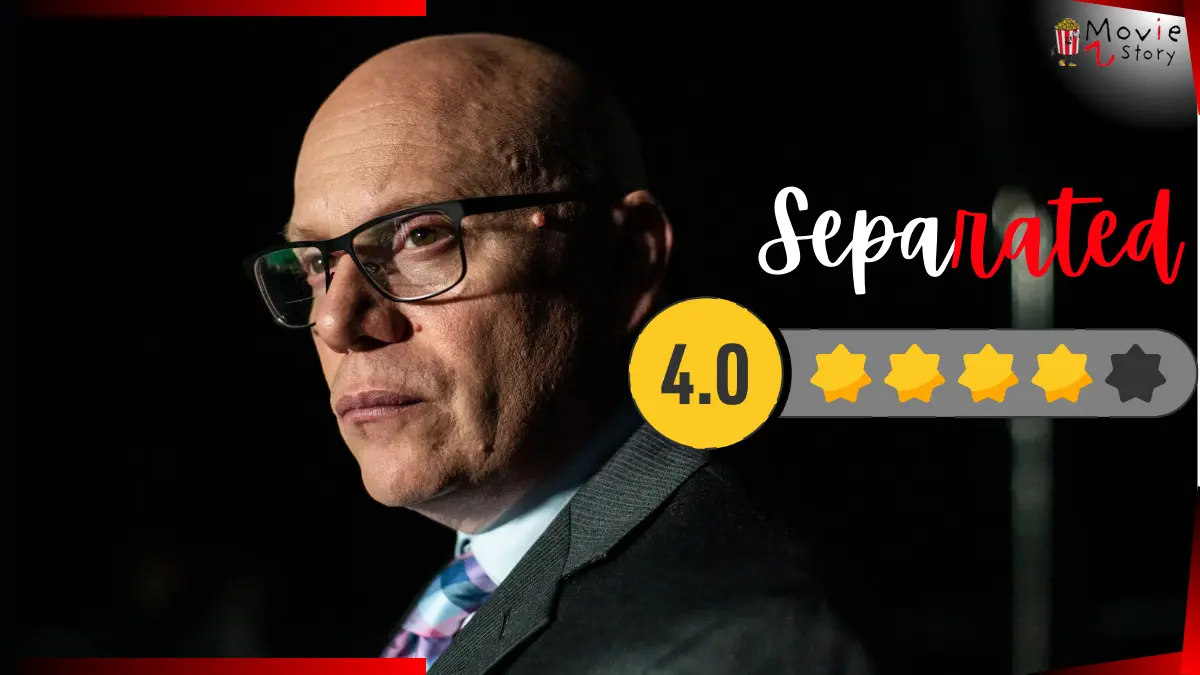Separated movie review: Separated, directed by renowned filmmaker Errol Morris, dives into one of the most contentious and tragic policies in modern American history—the family separation policy enacted under the Trump administration. Known for his incisive storytelling in films like The Thin Blue Line and The Fog of War, Morris adopts a blend of journalistic rigor and artistic expression. While the documentary seeks to expose the bureaucratic cruelty of this policy, it falters in emotional depth due to its reliance on sterile reenactments.
Separated movie review
The documentary focuses on the implementation and impact of the Trump administration’s “zero tolerance” immigration policy, which separated thousands of children from their parents at the U.S.-Mexico border. Adapted from Jacob Soboroff’s 2020 book, Morris provides a meticulous timeline of the policy’s origins and its devastating effects. By incorporating interviews with whistleblowers and government officials, the film builds a compelling case against the system that enabled such inhumane practices.
Morris emphasizes that while the Trump administration is a primary target, the flawed and often cruel treatment of migrants has been a bipartisan failure over decades. However, he makes a clear distinction between prior administrations’ inefficiencies and the calculated cruelty of Trump-era policies, particularly those spearheaded by Stephen Miller.
One of the most controversial aspects of Separated is its use of reenactments featuring composite characters, such as “Gabriela” and her son “Diego,” portrayed by actors Gabriela Cartol and Diego Armando. These characters symbolize the countless families torn apart by the policy. While the reenactments are visually striking, they lack the raw emotion and authenticity of real-life stories.
The decision to substitute actual interviews with affected families with fictionalized portrayals undermines the film’s emotional resonance. Morris’ choice to depict the mother-son duo as generic representations instead of individual voices feels distant and clinical, making it harder for viewers to connect with the true human cost of the policy.
Where the film shines is in its intellectual and investigative depth. Jonathan White, a whistleblower from the Office of Refugee Resettlement, emerges as a compelling figure. His candid testimony highlights how a system designed for unaccompanied minors was weaponized to create “state-sponsored orphans.” White’s empathetic perspective serves as a moral anchor, emphasizing that protecting children is not a political issue but a basic human obligation.
Morris also effectively skewers the architects of the policy. Scott Lloyd, the former director of the Office of Refugee Resettlement, is depicted as evasive and morally bankrupt during his interviews. Meanwhile, figures like Stephen Miller and Kirstjen Nielsen, who declined to participate, are presented as villains whose actions caused immeasurable harm.
Morris attempts to bring an artistic touch to the documentary with the use of symbolic visuals, such as comparing the border wall to a zoetrope. This metaphor, representing the interplay of light and shadow, hints at the stories hidden within the slats of the wall. However, these artistic elements remain underexplored and fail to add significant depth to the narrative.
The reenactments, while visually polished, feel disconnected from the raw realities they aim to depict. The lack of specificity in the fictionalized characters robs the audience of an opportunity to empathize with the unique experiences of real individuals.
One of the most poignant lines in the film comes from Jonathan White: “They’re not a metaphor. Each of them is an actual child.” Unfortunately, the documentary fails to embody this sentiment. By opting for composite characters, Morris distances the audience from the personal stories that could have brought the tragedy into sharper focus.
The reenactments, though intended to universalize the experience, lack the urgency and heartbreak that real-life testimonies could have provided. This choice dilutes the film’s emotional impact, leaving viewers intellectually outraged but not emotionally devastated.
Summary
Separated is a film that effectively documents the bureaucratic cruelty of the family separation policy, shining a light on the inhumanity of a system designed to deter migration at the expense of vulnerable families. Errol Morris’ investigative approach and intellectual rigor are commendable, and the film succeeds in sparking outrage and debate.
However, the decision to rely on reenactments instead of real-life stories creates an emotional void that diminishes its overall impact. For a subject matter as heartbreaking as this, the lack of personal testimonies feels like a missed opportunity to engage the audience on a deeper, more human level.
In the end, Separated is a documentary that plays to the head but misses the heart. While it’s a valuable addition to the ongoing conversation about immigration policy, it falls short of becoming a definitive work on the subject.
Top Rotten Tomatoes Reviews
Errol Morris gives a damning indictment of the 2016 Trump administration’s use of cruelty as a tool. Separated cannot be viewed in a vacuum considering the people who implemented child separation will soon return to power in the executive branch – Julian Roman, MovieWeb
It’s illuminating in the most chilling way – Matt Zoller Seitz, RogerEbert.com
Still, current events lend the film a power that goes beyond its flaws. The way “Separated” looks back in indignation is now incalculably enhanced by fear for the future, with even more traumatizing measures on the horizon… – Bob Strauss, San Francisco Chronicle
Nonetheless, what we glean from the totality of the interviews and research, and Morris’ well-honed style of coalescing information, is damning enough – Robert Abele, Los Angeles Times
White’s fire, and his soaring warnings about how political sycophants willing to effect a policy like family separation will always exist, are powerful enough – Ben Kenigsberg, New York Times
Top Movie Ratings
| Metacritic | 75% |
| Rotten Tomatoes | 96% |
| Imdb | 7/10 |
Latest Release Movie:


